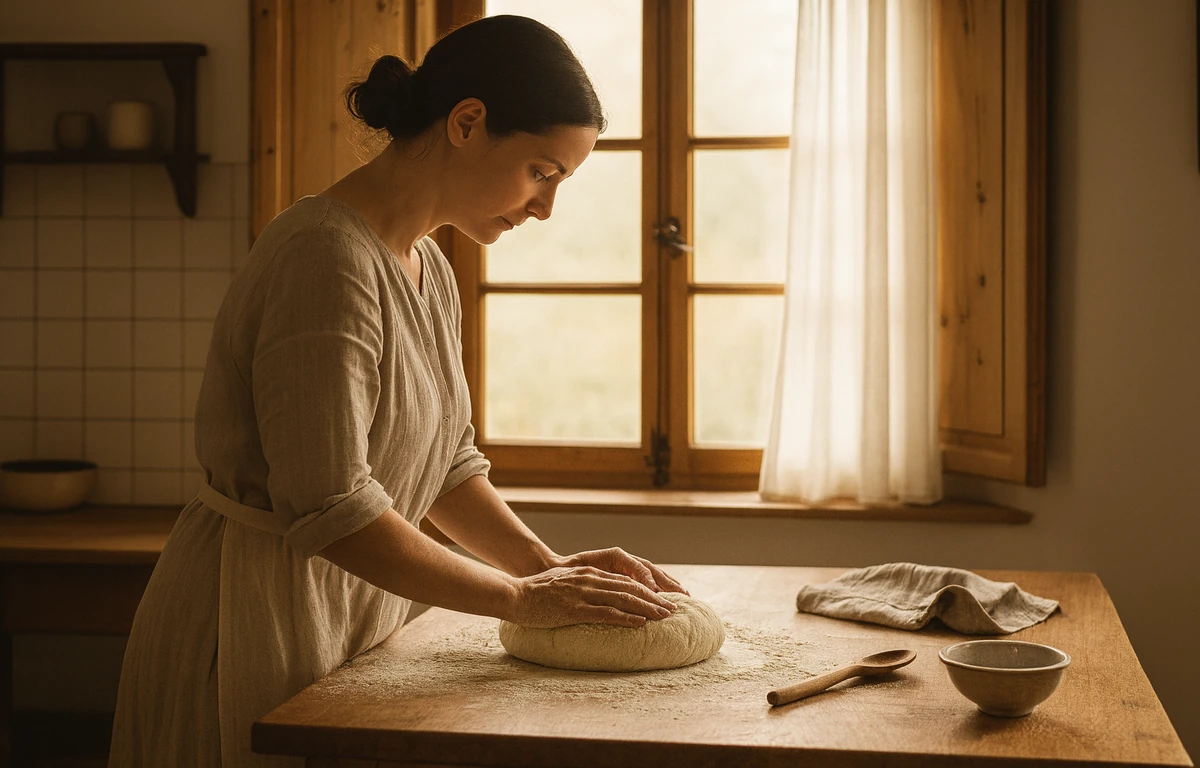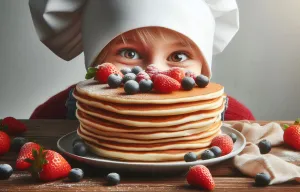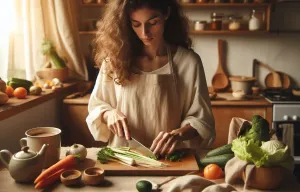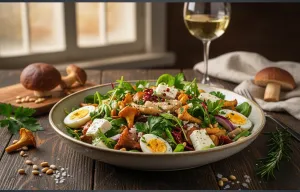“When I cook without a recipe, the world grows quieter. Everything around dissolves — only the aroma, warmth, and the feeling that life regains its flavor remain.”
People often ask me how I learn to cook new dishes if I don’t use recipes. I smile. Because it’s not about “knowing how.” In the kitchen, I listen — not with my mind, but with my heart. I think every woman who has ever cooked with love understands this feeling. It’s not about precision. It’s about presence. About how, mixing ingredients, you blend pieces of your day, your mood, your heart.
I used to search for recipes online, reading every gram and minute carefully. Yet each time, the result was different — not only because the ingredients changed. My mood, the light, even the background music influenced the taste. And that’s when I realized: it’s not about the recipe, it’s about me. About how I breathe in the scent of dough, how I touch the knife, how I watch the boiling water. Cooking is not science. It’s a tender dialogue with oneself.
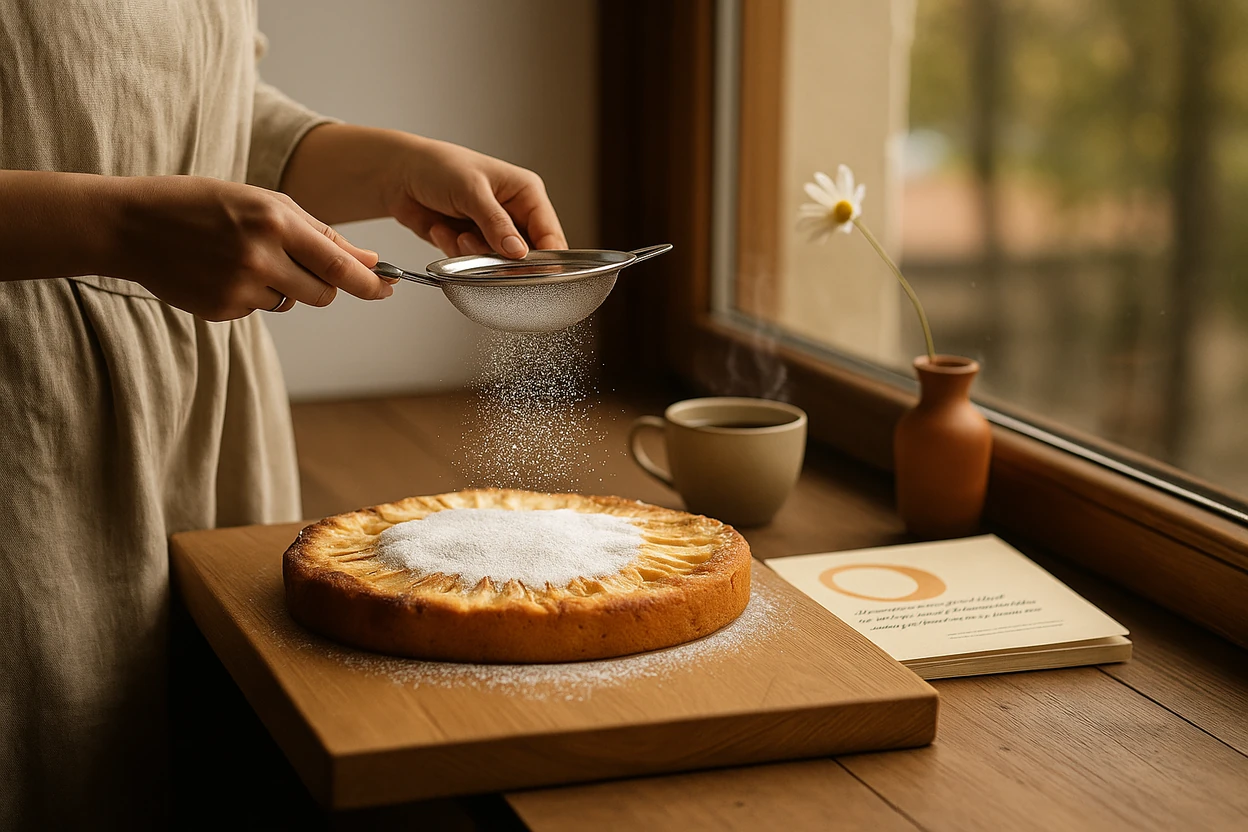
A taste that begins with memory
My intuition was born not in a class, but in my grandmother’s kitchen. It always smelled of bread, apples, and cinnamon there. She never used a scale. “As much flour as the dough will take,” she used to say. And that was the first culinary wisdom I learned. Because the dough truly “knows.” It’s alive. If you listen to it, it tells you when to stop. Just like life.
Back then, I didn’t realize that this was intuition — feminine, natural, quiet. We all carry it within us but are often afraid to trust it. Because we want to be “right.” Because recipes seem more reliable than our own hearts. But every time I allowed myself to improvise, something new was born — both on the plate and within me.
When cooking becomes a language
There are evenings when I come home tired and silent. And that’s when I reach for the stove. Not because I have to. But because I want to feel. Every movement becomes a phrase: slicing — as if writing a letter. Salting — as if adding courage. I breathe in the aroma of onions — and suddenly it’s easier. I think that in the kitchen I speak with life itself. It responds not with words, but with scents. Sometimes gently. Sometimes sharply. But always truly.
When I cook without a recipe, I feel the memory of the women of my lineage awakening in me. They too once stood by the stove, listening, breathing, sensing. And even if we’ve never met, their gestures live in my hands. It’s not romance — it’s heritage, unwritten in genes, but carved into gestures.
Listening to food — like listening to yourself
There are moments when the dish “speaks.” Butter whispers that it’s time to lower the heat. Water hums — meaning the pasta is almost ready. I smell it and know: one more minute — and it’s done. No one taught me that. I just stopped rushing one day. And then I heard. Perhaps this is what intuitive cooking is about — not doing faster, but living slower. Allowing aroma to unfold. Flavor to ripen. A second to become eternity.
Sometimes I make mistakes. The dish is too salty, the dough doesn’t rise. But even then, I don’t get angry. Because every mistake holds life. When you stop fearing to spoil — you start creating. And each new flavor becomes a discovery. Not culinary — human.
Harmony without measurements
How much salt? How much flour? As much as it takes to taste right. We, women, understand this without numbers. Like knowing when to hug a child and when to give space. Like feeling when silence heals better than words. Balance cannot be measured — it can only be felt.
True cooking is not when everything is equal, but when everything is in harmony. When sour meets sweet, hot meets cold, fresh meets thick. It’s like in relationships: everything holds together on nuances, not on rules. And the more trust you have, the deeper the flavor.
Cooking as therapy
Sometimes I cook to calm myself. Not for someone — for me. The dough under my hands reminds me that everything can change. Just a little patience, warmth, and motion — and it becomes something else. Maybe that’s why cooking heals. It returns to the body the memory that it can create. That even from simple ingredients, something tender can be made. That form can arise from chaos.
When I knead the dough, I knead my thoughts. When I stir the sauce, I feel the tension leaving me. When I slice apples, I realize: this too is a way to love. Not only myself. Because everyone who sits at the table receives not just food — but a part of my state. And if I was calm, they’ll feel it, even unconsciously.
The kitchen as a mirror
I often notice: a dish reflects me. When I’m focused — everything turns out perfectly. When I rush — it shows. When I cook with tenderness — it’s impossible not to notice. Food is honest. It always tells the truth about us. And maybe that’s why I love the kitchen — it doesn’t judge, but it reveals. It brings me back to myself. To the part that can feel even when the mind is silent.
Feminine intuition and cooking
We live in an age of excess knowledge. But true wisdom is in the body. In the glance, in the movement, in the scent. Intuition isn’t a mystery; it’s inherited memory. We, women, carry it within us. When we cook, we not only feed, we restore our connection with our own power. Because food is an act of love — but also an act of creation, transformation, giving. And perhaps that’s why intuitive cooking is so profound — it teaches to listen, but also to act. To be gentle, but confident. Precise — without measuring.
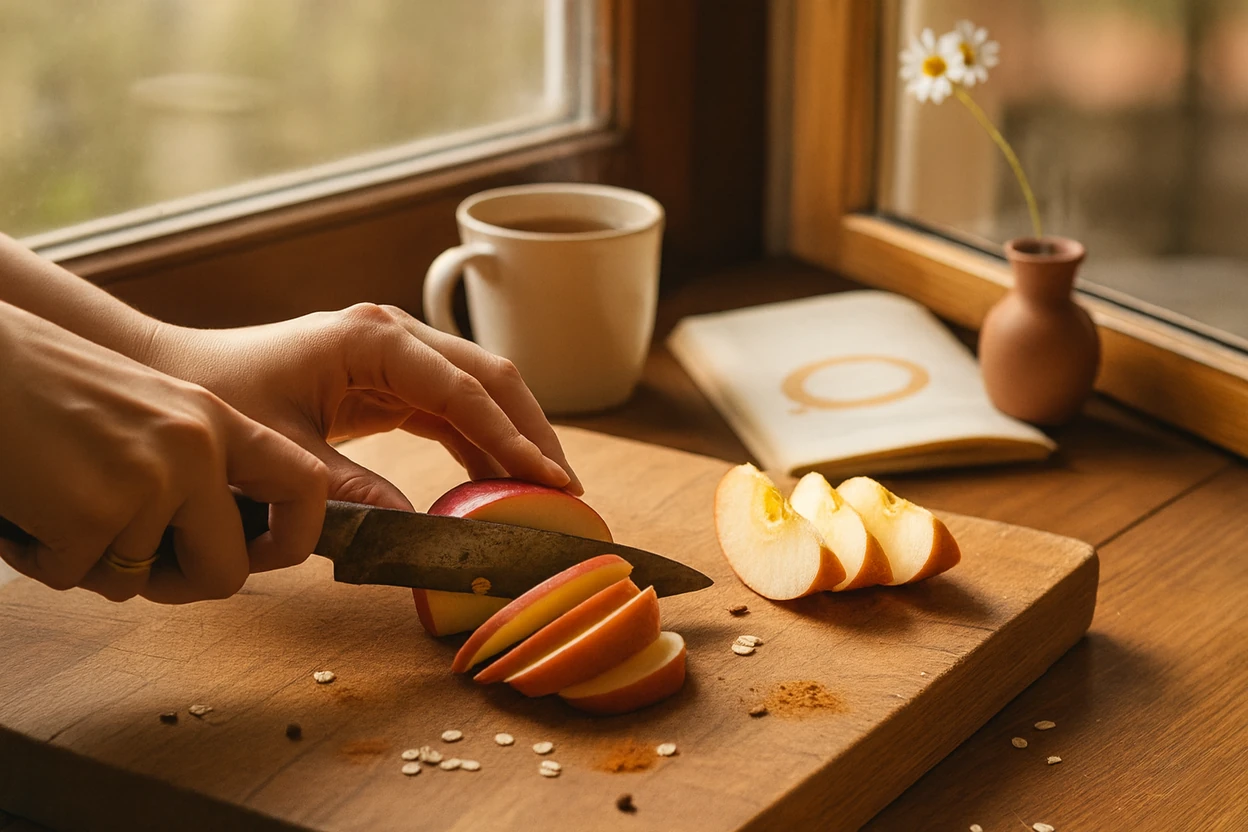
Conclusion
Cooking without a recipe is not only about food. It’s about a life where you may not know the outcome but keep going anyway. About faith in yourself. About the right to make mistakes. About trust in the flavor that’s born right now. Because, as in love, in cooking it’s not about “knowing how,” but about “being in it.”
Maybe that’s why I love the kitchen more than any other place. It reminds me: the world doesn’t need perfection — only sincerity. And that the best dishes, like the best moments, are always born not from a recipe but from a feeling. From intuition. From love.
“I don’t always know how it will turn out. But I know — if I’m calm, attentive, and sincere, it will taste right.”

